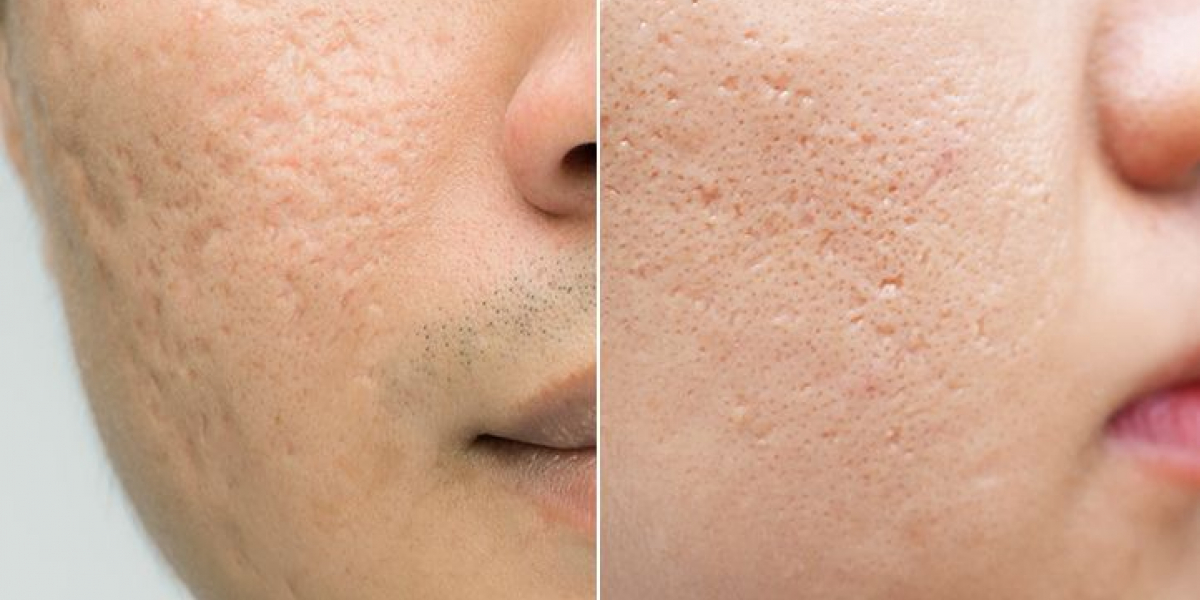Acne & Acne Scar Treatment

Acne is a very common skin condition that is characterized by the presence of pimples, blackheads, or even deeper cysts. The formation of acne is observed on the face, & sometimes affects the chest, back, and upper arms/shoulders. Changes observed in the surface, volume, and movement of the skin can lead to the development of acne scars. Acne scars are caused by the inflammation of acne blemishes.
Treatment
Treatment is possible after thorough clinical analysis with active acne preventing medications and clinical procedures like “Mesoporation”, “Dermaroller”, “Chemical Peel” and “Lasers”
- Mesoporation- Mesotherapy can help the body flush out toxins and hence is used to treat acne
- Dermaroller- The dermaroller helps create multiple small skin lesions which urge the body to produce more collagen which heals your skin and help you look younger
- Chemical peel- The top layer of old skin is removed using specific chemicals in this therapy. When the top layer is removed, the new skin that grows in is usually smoother and less likely to leave acne scars
- Laser- Laser encourages the growth of new skin to replace the old acne scars
Benefits
- Reduce the chance of developing further acne scarring
- Reduce the already present scars
- Prevents mild acne from further developing
- Decrease the likelihood of administering strong acne medicine
FAQs
- Are there different types of acne scarring?
- Ice pick
- Boxcar
- Rolling
- Atrophic
- Are there non-invasive cures for acne?
- Although there are numerous methods used, chemical peels can be used to treat acne non-invasively. This treatment is used to help with skin discoloration or scarring caused by acne. Other benefits include the reduced appearance of wrinkles, sun damage, and age spots. The treatment is time-efficient, but you will experience peeling or flaking around the treatment area for 4-7 days afterward
- Are acne scars permanent?
- Your reddish or brownish acne spots that remain after pimples have cleared up will usually vanish without therapy. Picking or squeezing acne, on the other hand, can lead to scars.
- Are acne scars red?
- Some acne scars may be red, purple or pinkish in colour due to a buildup of melanin in the skin. If the area is red and is still inflamed and swollen, the acne is likely to still be active.

